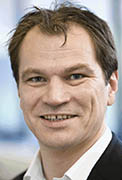
Prof. Quentin Fisher
After completing his PhD in low temperature isotope geochemistry, Fisher spent 15 years working at Rock Deformation Research Limited, where he managed the group responsible for microstructural and petrophysical property analysis of fault rocks. In this time, he worked on over 350 petroleum reservoirs and built a large number of JIPs that built up a database of fault rock properties in siliciclastic reservoirs. Fisher built the Wolfson multiphase flow laboratory, which made the first ever measurements of the relative permeability of fault rock samples. Since leaving RDR in 2008, Fisher continued to work on fault-related fluid flow for both the petroleum and radioactive waste disposal industries. He has also conducted several large JIPs in the petrophysical properties of unconventional reservoirs (tight gas sandstone and shales) and on coupled fluid-flow-geomechanical-geophysical modelling. Fisher is Director of the Wolfson multi-phase flow laboratory at the University of Leeds and co-founder and Research Director of Petroleum Leeds. Fisher has developed a cross-institution research group aimed at creating software and workflows to integrate the petroleum geoscience disciplines (i.e. petroleum engineering, geophysics, geomechanics and geology). He has extensive knowledge transfer activities, including websites, regular industrial seminars, short courses etc. Fisher has published ~60 papers on subjects including geochemistry, geomicrobiology, structural geology, petroleum engineering, geomechanics and geophysics.

Dr Carlos Grattoni
Grattoni is currently Principal Experimental Officer at the Wolfson Multi-phase Flow Laboratory, University of Leeds, which is a worldwide state-of-the-art facility on the measurement of equilibrium and flow properties of low permeability rocks. He has more than 20 years' experience in laboratory core analysis and the determination of a wide range of petrophysical properties. Before becoming manager of the Wolfson Laboratory, in June 2012, he worked in Rock Deformation Research Limited conducting core analysis on fault rocks for the petroleum industry. Grattoni has written more than 30 proprietary reports for the petroleum industry mainly on faulting and fault seal analysis, low salinity water flooding, brine production from gas reservoirs, depressurization of waterflooded reservoirs, etc., and helped the development of the critical understanding of multiphase flow in homogeneous and heterogeneous rocks. He made the first measurements on the multiphase relative permeability of fault rocks. Grattoni published ~ 145 scientific publications including 54 journal referred papers. He also has extensive experience in project management and PhD student supervision. He has participated in in a wide range of research areas and projects and recently has been Co-I on four JIPs aimed at building understanding of the petrophysical properties of tight gas sands, caprocks and shales. He also has a large network of contacts across Petroleum disciplines both in industry and academia.

Dr Graham Yielding
Yielding received a MA in Natural Sciences followed by a PhD in Geophysics from the University of Cambridge. He then spent 4 years in industry working for Britoil. He then moved to Badley Geoscience where he is now a director. Yielding is a world-leading expert in the application of structural geology to the petroleum industry. He has over 25 years consulting experience and has a long publication record in fault-seal methodology.

Dr Brett Freeman
Freeman has been the Head of Software Development at Badley Geoscience since 1988. He has thirty years' experience of development and application of numerical techniques to the solution of problems in structural geology and geomechanics.

Dr Emma Michie
Michie received a 1st class Master of Geological Science from the University of Leeds before going on to complete her PhD at Aberdeen University on the flow properties of faults in carbonate reservoirs. As part of this research, she collected the largest dataset on the permeability of faults in carbonate reservoirs that has ever been collected. During her PhD she also conducted an internship for Total and won the best poster award at the Tectonic Studies Group annual meeting. She recently took up a position at Badley Geosciences as a consultant structural geologist.

Dr Samuel Allshorn
Sam gained a BSc in geological sciences before studying for a PhD in hydrogeology. He has worked for the last 3 years in the Wolfson Multiphase flow laboratory where he has paid a major role in the development of our new stressed Hg-injection porosimeter. Sam will be responsible for the analysis of the petrophysical properties of samples for the CFTG and will provide assistance to the PhD students during their laboratory analysis. Sam is also a leading caver and has conducted expeditions throughout Europe, Borneo etc.; this expertise will be invaluable in the identification of features such as collapses karsts etc.

Andrew Cooke
Andy gained a BSc at University College London in Geological Sciences. His final year project was on micro seismicity in Iceland. He then joined the Carbonate Fault Research Group and has so far been working on faults on the Maltese Islands. He will also be conducting research on fault sealing within Zechstein carbonates in Europe.

Ieva Kaminskaite
Ieva gained a BSc in Geological Sciences at Durham University before going on to gain an MSc be research at the University of Leeds. Her MSc research focused on faults within chalk outcrops from the UK. She then joined the Carbonate Fault Research Group and has so far focused her research on fault rocks within carbonates in Italy.


